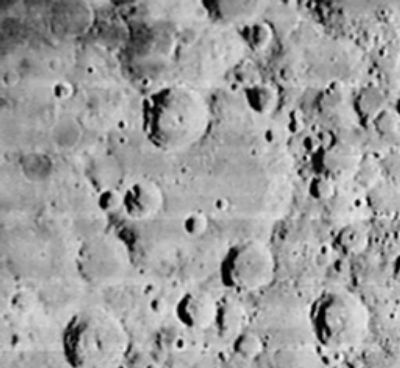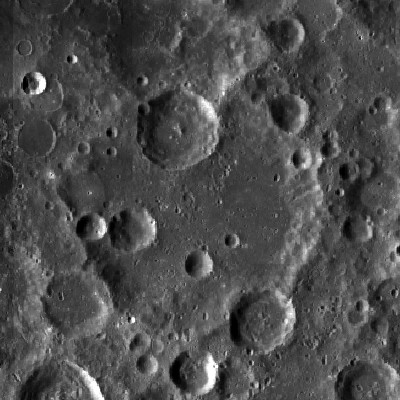Hirayama
Contents
Hirayama - with Montesquieu and Tolstoy on its floor (LTO names)
| Lat: 6.1°S, Long: 93.5°E, Diam: 132 km, Depth: 5.1 km, Rükl: (farside), pre-Nectarian |


left: Lunar Orbiter II . right: LROC
Images
LPOD Photo Gallery Lunar Orbiter Images Apollo Images
AS12-55-8144 shows Hirayama K (the LTO's Balzac).
Research: Danny Caes
Maps
(LAC zone 82A4) LAC map LTO map
Description
Description: Wikipedia
Additional Information
Depth data from Kurt Fisher database
- Westfall, 2000: 5.1 km
Nomenclature
- Kiyotsugu Hirayama (1874–1943) was a Japanese astronomer, best known for his discovery that many asteroid orbits were more similar to one another than chance would allow, leading to the concept of asteroid families, now called Hirayama families in his honour.
- Shin Hirayama (1868–1945) was the first Japanese astronomer to discover an asteroid. In 1900 he discovered 498 Tokio and 727 Nipponia.
- In the planning for Apollo 8, the first manned circumlunar mission (1968), this crater (which did not then have an official name) was referred to informally as "Collins", a name subsequently approved for use in connection with a completely different farside crater (source: Phil Stooke's LPOD).
- The following unofficial names were printed on Lunar Topographic Ortophotomaps 82-A3, 82-D1, 82-A4: Hirayama C: Ariosto, Hirayama M: Austen, Hirayama K: Balzac, Hirayama Q: Longfellow, Hirayama S: Montesquieu, Hirayama Y: Tolstoy. - DannyCaes Jan 15, 2008
- Wikipedia-pages: Ariosto, Austen, Balzac, Longfellow, Montesquieu, Tolstoy.
LPOD Articles
Bibliography